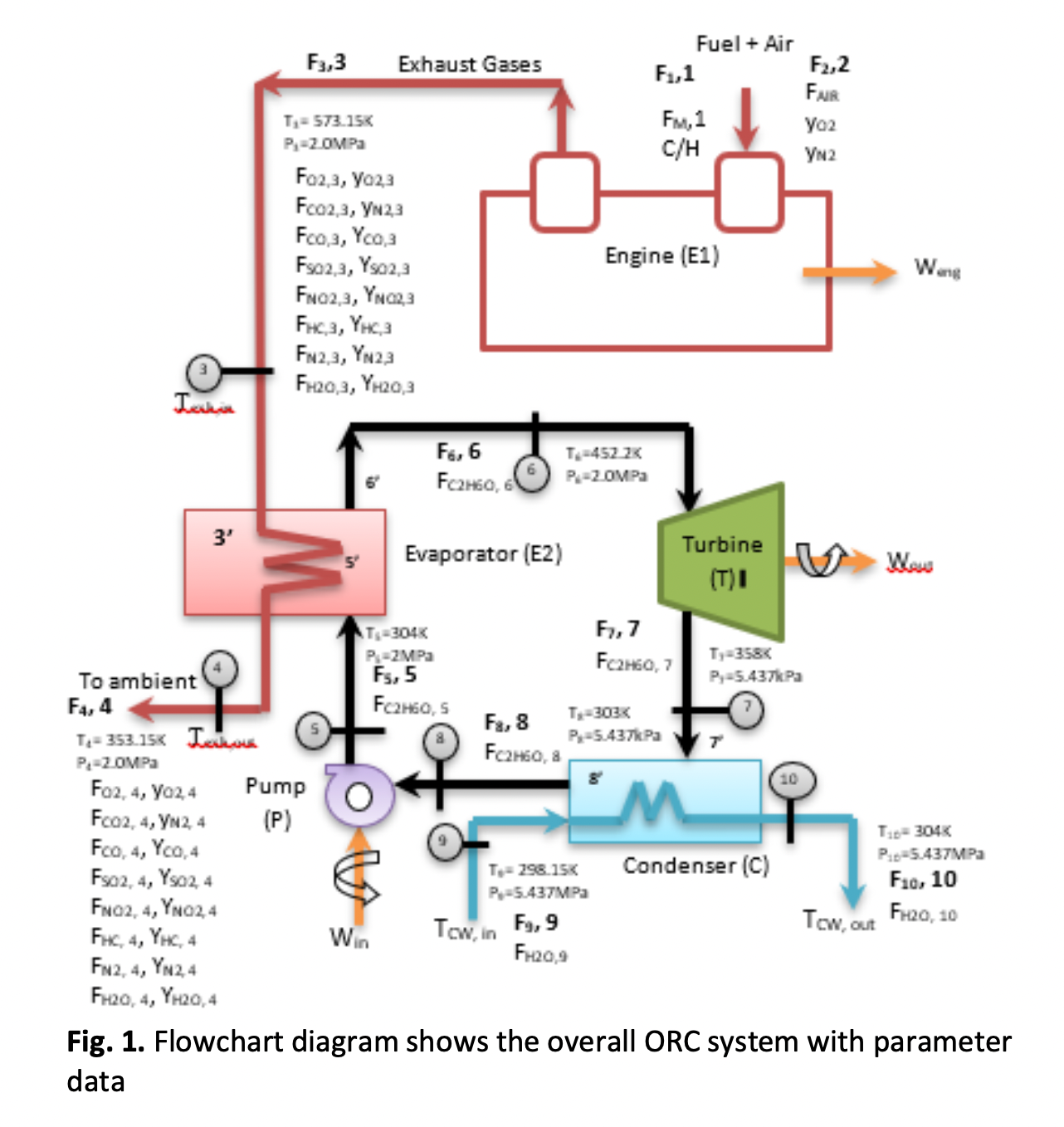Improve Waste Heat Recovery and Performance of Organic Rankine Cycle Analysis for Exhaust Gas from A Marine Diesel Engine Using Biofuel from Algae
DOI:
https://doi.org/10.37934/araset.29.3.120Keywords:
Organic Rankine cycle, Biofuel, MicroalgaeAbstract
Marine diesel engines are commonly used as a propulsion system in ships. The waste heat generated from marine diesel engines is one of the key disadvantages of this system. This study aims to improve the recovery of waste heat generation. It presents the performance analysis of Organic Rankine Cycle (ORC) for exhaust gas in a marine diesel engine using different types of biofuels production methods from selected microalgae via mathematical modelling. The microalgae are from species of Synechococcus PCC 7002, Nannochloropsis oculata sp, Chlorella protothecoides, and Dunaliella sp. A marine engine with an exhaust gas of 9086.61 kg-h-1 is taken as a case study. While the conventional diesel engine has a performance efficiency of 30-40% with a power output of 35-200K, this study has indicated that the marine diesel engine in the ORC via biofuel from algae shows higher performance at approximately 51% with a net power output of approximately 160kW obtained for each biofuel. Later, the thermal efficiency of the ORC system with exhaust gas from the marine diesel engine as waste heat recovery is improved to 61% with a net power output of approximately 353kW after the heat integration. Biodiesel presents the highest mass flow rate (1.12 kg-s-1) compared to others. This study proved that biofuel from microalgae can achieve the highest performance in the ORC system with the lowest mass flow rate of biofuel compared to those in conventional fuel.
Downloads





























